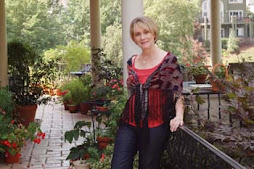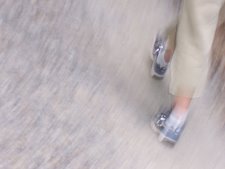
We spend a lot of time thinking about how we should prepare for after college, after our children grow up, and how we should spend retirement. But seldom do we engage in conversations about how we would prefer to live out our last days.
I became hotly aware of a human being’s sacred last seconds only after Jessi died. I interviewed people who had been at her side. I listened to stories and wrote them in a journal. Everything is sacred during that season.
When I was a teenager, evangelists would sensationalize death so much that I think it caused people my age to withdraw from the conversation altogether. If you only had an hour to live, would you say “yes” to Jesus right now? What if you were hit by a train? Then would you be ready for eternity? Making people afraid of the deathbed instead of preparing for it as earnestly as we do other stages of life sells short the opportunity to begin engaging in conversations that openly embrace this stage of life and the hope that can follow it.
To reduce that very important moment to a platitude on a revivalist’s brochure is to extract from it all of its deeper layers. What is more important is how we choose to live day-by-day and then, for the person who is told she doesn’t have long to live, what should be decided about living out the last days. And barring that, are there decisions that we can make now that—pending sudden disaster—that will let our family members know how we would prefer to live out our last hours?
I was born between the Great Depression and the Information Age so I carry memories of a time when a dying family member drew people to the bedside to make wrongs right and to say good-bye. Then came the medical technology that often so disables the dying person leaving the patient unable to speak or be aware of the people gathered around the bedside.
When my own mother died, the physician had increased her morphine so much that by the time I arrived, she could only blink and force a faint smile. Her sister, my Aunt Connie, and I kept a vigil all night next to my mother. Right at dawn, right as the first light was breaking over the Ozark Mountains, my mother lifted right out of that morphine-induced coma, reached out to something she could see at the end of her bed, and then passed on. I would have loved to have known what she was seeing at that moment. The things a dying person can teach are sacred lessons.
I became hotly aware of a human being’s sacred last seconds only after Jessi died. I interviewed people who had been at her side. I listened to stories and wrote them in a journal. Everything is sacred during that season.
When I was a teenager, evangelists would sensationalize death so much that I think it caused people my age to withdraw from the conversation altogether. If you only had an hour to live, would you say “yes” to Jesus right now? What if you were hit by a train? Then would you be ready for eternity? Making people afraid of the deathbed instead of preparing for it as earnestly as we do other stages of life sells short the opportunity to begin engaging in conversations that openly embrace this stage of life and the hope that can follow it.
To reduce that very important moment to a platitude on a revivalist’s brochure is to extract from it all of its deeper layers. What is more important is how we choose to live day-by-day and then, for the person who is told she doesn’t have long to live, what should be decided about living out the last days. And barring that, are there decisions that we can make now that—pending sudden disaster—that will let our family members know how we would prefer to live out our last hours?
I was born between the Great Depression and the Information Age so I carry memories of a time when a dying family member drew people to the bedside to make wrongs right and to say good-bye. Then came the medical technology that often so disables the dying person leaving the patient unable to speak or be aware of the people gathered around the bedside.
When my own mother died, the physician had increased her morphine so much that by the time I arrived, she could only blink and force a faint smile. Her sister, my Aunt Connie, and I kept a vigil all night next to my mother. Right at dawn, right as the first light was breaking over the Ozark Mountains, my mother lifted right out of that morphine-induced coma, reached out to something she could see at the end of her bed, and then passed on. I would have loved to have known what she was seeing at that moment. The things a dying person can teach are sacred lessons.








